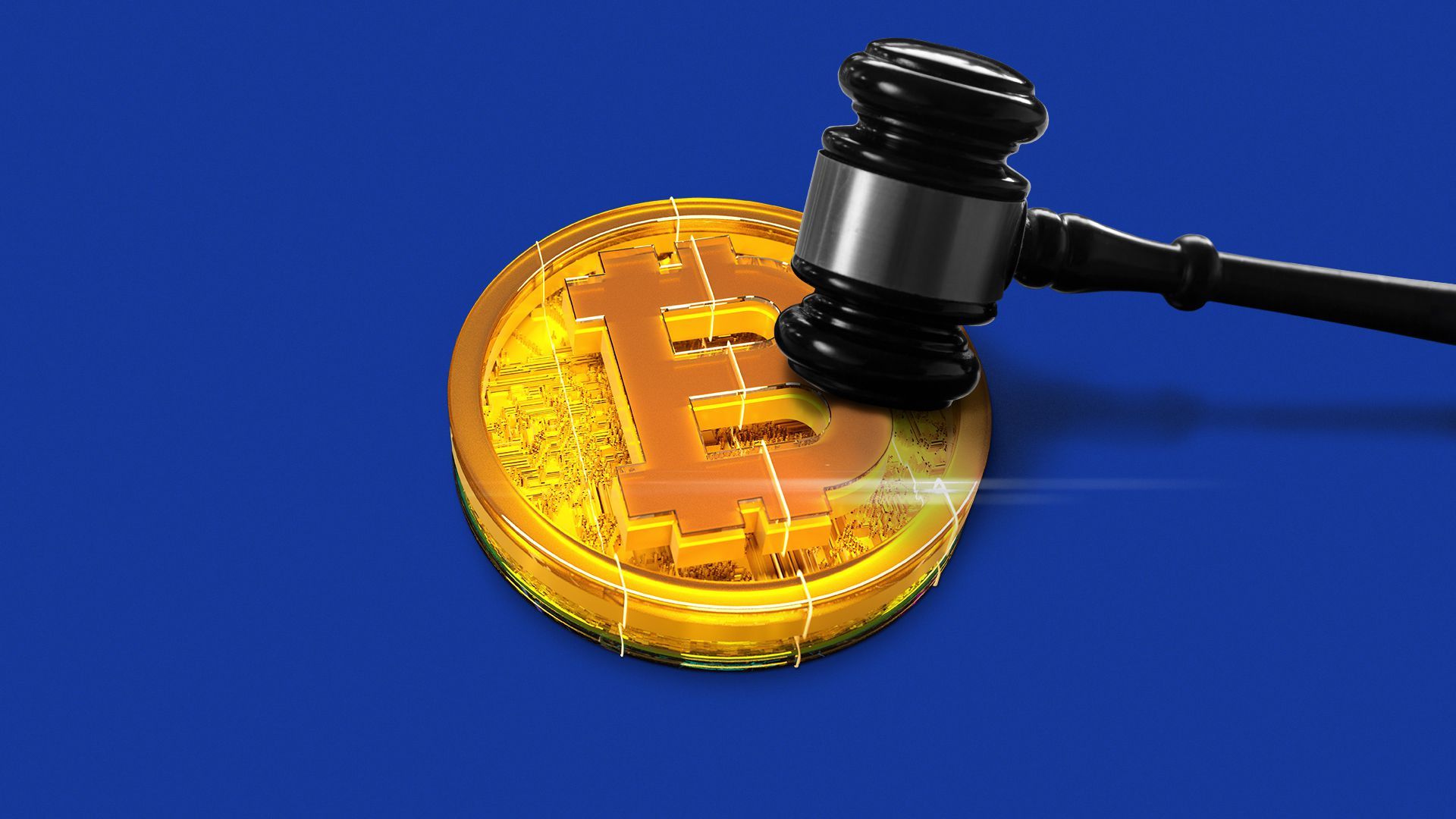| | | | | | | Presented By Anatha | | | | Axios Markets | | By Sam Ro ·Sep 15, 2021 | | Today's newsletter is 1,288 words, 5 minutes. 🌭 of the day: The price of frankfurters fell 8.3% month over month in August, according to the BLS. | | | | | | 1 big thing: Cooler, but not cold |  Data: FRED; Chart: Axios Visuals The pace at which consumer prices rose in August cooled off by more than expected. But economists are stopping short of declaring that inflation has been transitory. Why it matters: Since the beginning of the year, the rate of inflation has been above average. - However, much of it has been driven by supply chain issues amid a rapidly reopening economy, which has led many to argue that this recent bout of inflation is transitory.
By the numbers: The core Consumer Price Index, which excludes food and energy prices, rose by just 0.1% month over month in August. - This was a significant deceleration from the 0.3% increase in July. Economists had expected August's price growth to come in at 0.3% again.
- The prices of used cars and trucks, which had been particularly hot due to supply chain disruptions, fell by 1.5% during the month.
- Hotel and motel prices and airline fares, which were boosted earlier this year by the rush to travel, fell by 3.3% and 9.1%, respectively.
What they're saying: While a lower-than-expected inflation reading may be welcome news to the Federal Reserve, which has been keeping monetary policy very loose, economists caution against declaring victory on rapidly rising prices. - "The winds of transitory inflation became crossed this month," Bank of America U.S. economist Alexander Lin said. He noted that while prices for some notable items fell, prices for other items — including new cars, home furnishings, recreational goods and apparel — rose significantly.
Between the lines: There's also the matter of the recent resurgence in COVID-19 cases putting a damper on demand, which in turn has helped prices cool. - Goldman Sachs chief economist Jan Hatzius wrote that "Delta-sensitive categories contributed -0.13pp" to the monthly decline in core CPI, adding that this "could reverse in coming months if cases continue to fall."
What to watch: The next few consumer inflation reports will bear watching to see if prices continue to cool, which will be at least partly dependent on the direction of COVID infections. - "Inflation from February to July was extraordinarily high: core CPI rose at an 8.0% annual rate," Jason Furman, a Council of Economic Advisers chairman for President Obama, tweeted. "We always knew that inflation would not continue at an 8.0% annual rate."
- "The question is will it slow to something like 2% (the Fed's view) or something meaningfully higher (my view)."
|     | | | | | | 2. Catch up quick | | President Biden is expected to meet with executives of companies including Disney, Microsoft and Walgreens Boots Alliance to discuss vaccine mandates for the private sector. (WSJ) Jerome Powell's reappointment as Federal Reserve chair is gaining the support of Senate moderates. (Axios) Microsoft raised its quarterly dividend by 11% and announced a new $60 billion share buyback program. (Reuters) |     | | | | | | 3. Crypto faces the regulators |  | | | Illustration: Rae Cook/Axios | | | | Fittingly for a day in which Securities and Exchange Commission chair Gary Gensler pulled no punches in his Congressional testimony, the main theme running through the Blockworks crypto conference on Tuesday was undoubtedly regulation, Axios' Felix Salmon writes. Why it matters: The crypto world both hates and needs regulation in equal measure. State of play: Few if any U.S. crypto companies can say that they are regulated by the SEC or any other national regulator, and have passed that agency's scrutiny. - The SEC complains that crypto companies like Coinbase don't come to it for regulation. That's even though those companies deal every day in tokens that can be considered securities, even though Coinbase is an actual exchange — and even though a thumbs-up from the SEC would confer a degree of legitimacy that would be extremely reassuring to investors both small and large.
- The crypto companies complain that they can't stand still waiting for regulatory approval on the basis of decades-old securities laws, while the rest of the world leaps ahead with innovations like distributed exchanges that don't even have a corporate entity to regulate, or even a nationality that could determine which country's regulator to approach.
The big picture: Existing players in the crypto space have experienced extreme volatility in the price of crypto assets, and concomitant huge speculative gains and losses. They've also seen a large amount of fraud, theft and other crime. Today's crypto investors don't think of it as a safe place to park funds and don't feel that they need any kind of regulatory hand-holding. - A safe and trusted financial system, however, is the destination that many crypto companies claim to be aspiring to, especially with the rapid growth of stablecoins linked to the dollar.
- Of note: The SEC's most recent action, targeting Coinbase, came in response to an attempt by Coinbase to create a beacon of safety in the crypto world — a guaranteed savings account denominated in dollars.
The bottom line: The bigger the money, the more the demand from conservative investors for clear rules and regulations. "The DeFi guys want the TradFi money, but they don't want the rules," Ledger's Joel Edgerton said at the Blockworks conference. "It doesn't work like that." |     | | | | | | A message from Anatha | | Anatha is crypto for the 100% | | |  | | | | ANATHA is a new kind of cryptocurrency built on the radical belief that economic systems should serve everyone. We decentralize the flow of money, connecting people to real value on a platform that is 100% accessible to 100% of everybody. Learn more. | | | | | | 4. Wagering on Sportradar |  | | | Photo: Nasdaq Inc. | | | | Not even Michael Jordan could convince retail investors to bet big yesterday on Sportradar (SRAD), whose stock didn't pop after it began trading on the Nasdaq, Axios' Dan Primack writes. By the numbers: Sportradar raised $513 million in its IPO, pricing at $27 per share for a valuation just shy of $8 billion. It closed down 7.2% at $25.05 per share. Why it matters: The Swiss company is by far the leading provider of data technology to the U.S. sports betting industry, which is only expected to expand as it's legalized in more states. - Sportradar CFO Alex Gersh tells Axios that the U.S. is easily the company's biggest global growth opportunity, even though Europe has the obvious first-mover advantage. He also expressed particular interest in Brazil and India.
- As for China, where gambling is currently illegal, he said, "We've started to build a relationship and if [legalization] happened, you better believe we'll be there."
Pandemic talk: Sportradar managed to survive last year's global live sports stoppages, even though growth slowed to a crawl, by reorienting around things like esports and other simulated reality content. Wait, Michael Jordan? Yup, the GOAT was an early adviser to Sportradar, even before the Supreme Court legalized sports betting. He's also an investor and was part of yesterday's bell-ringing celebration. |     | | |  | | | | If you like this newsletter, your friends may, too! Refer your friends and get free Axios swag when they sign up. | | | | | | | | 5. Apple banks on subsidies |  | | | Apple CEO Tim Cook, introducing the iPhone 13 on Tuesday. Photo: Apple | | | | With the iPhone 13 lineup providing only modest updates to Apple's flagship smartphone, the company may be even more reliant on promotions from wireless carriers to keep the sales momentum going, Axios' Ina Fried writes. Why it matters: Apple counts on the iPhone for a huge chunk of its own sales, while such sales are also critical to the rest of the mobile industry, including network providers and component suppliers. Our thought bubble: Apple is the largest stock in the S&P 500, so its performance — which is up 14% year to date — has an outsized impact on any indexed portfolio. Driving the news: Apple on Tuesday unveiled the iPhone 13, iPhone 13 mini, iPhone 13 Pro and iPhone 13 Pro Max — all updates to similar-size models from last year's line. - A sleeper hit among the updates could be a larger battery, which addresses one of the biggest issues facing modern smartphone owners: a phone that does everything they want but still struggles to get through a full day of heavy use.
The big picture: Subsidies, which had been on the wane, have increased over the last couple of years and have played a big part in keeping iPhone sales strong throughout the pandemic. - Apple talked about carrier trade-in discounts as a part of its pitch for the iPhone 13.
- AT&T, Verizon and T-Mobile have already announced a range of deals, including up to $800 off the iPhone 13 and up to $1,000 off the iPhone 13 Pro Max.
|     | | | | | | A message from Anatha | | Universal Basic Income. Now available for download | | |  | | | | What if UBI could pay for itself? What this means: ANATHA is a new kind of cryptocurrency that connects people to real value. Our goal? A regenerative income that can lift millions out of poverty and strengthen our economies as a whole. Learn more. | | |  | | It'll help you deliver employee communications more effectively. | | | | | | Axios thanks our partners for supporting our newsletters. If you're interested in advertising, learn more here.
Sponsorship has no influence on editorial content. Axios, 3100 Clarendon Blvd, Suite 1300, Arlington VA 22201 | | | You received this email because you signed up for newsletters from Axios.
Change your preferences or unsubscribe here. | | | Was this email forwarded to you?
Sign up now to get Axios in your inbox. | | | | Follow Axios on social media:    | | | | | |












No comments:
Post a Comment